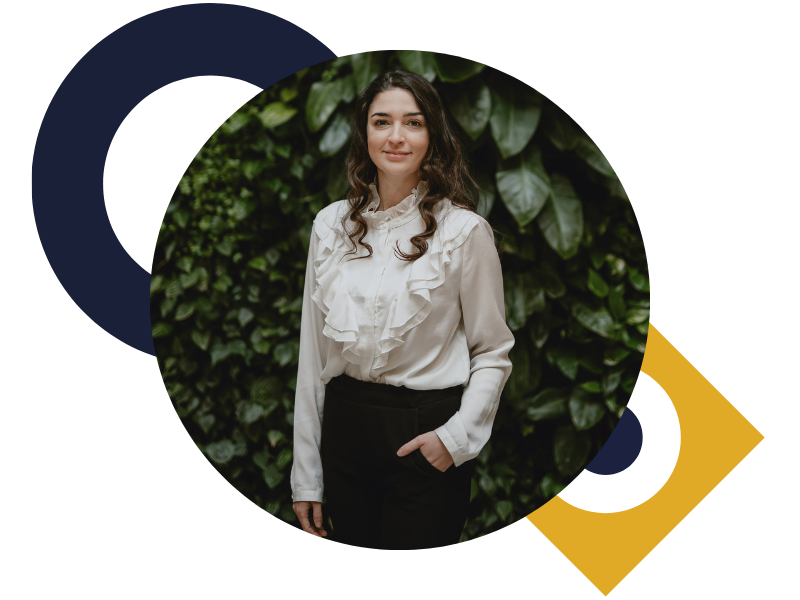“My opinion is considered more credible because I am a PhD student” – the PhD story of Anilla Till

Anilla Till applied for the interview from Iceland, some 40 km from the latest volcanic eruption, where she is currently studying on an Erasmus grant. Everything in her life seems to revolve around the importance of effective communication and conservation, so it’s no surprise that she’s also working on these issues in her PhD programme. “My main goal hasn’t changed much since I joined the programme: I want to work on communicating ecological sustainability in both academia and industry. Throughout my career I have always had a focus on both areas, I really like to combine them”.
Anilla’s main research question is how to communicate about ecological sustainability in a way that inspires people to change their behaviour. She believes that positive communication, through experiences connected to nature and a focus on the health of the planet, can also have an impact on the wider community. In addition to her research, she promotes this approach through talks and her own social media platforms, and regularly speaks to the media. She insists that being a PhD gives her words weight. “Even in my private life, my opinions in my field are often considered more credible because I am a PhD student.”
Anilla started thinking about doing a doctorate in the second week of her bachelor’s degree. “I really liked the style of my PhD lecturers. They were really inspiring, and I started to think that I would like to be such an inspiring person. Since I did well in my thesis and won a Student Scientific Association, I always had this idea in my head”.
Anilla completed both her bachelor’s and master’s degrees in communication and media sciences at Corvinus. In the meantime, her desire to see the world had been awakened. She spent full semesters in France and Finland on various scholarships, and also completed a master’s programme in Sustainable Communication at Jönköping University in Sweden.
“When I was there, I started thinking about applying for a PhD somewhere. At that time, I personally knew several people who were close to getting a PhD, and I finally decided that I wanted to develop in the field of science that I loved, so I applied.”
An experienced traveller, Anilla compared the Corvinus doctoral programme with several doctoral programmes in Western and Northern Europe. What she found was that most universities only advertise when there is a vacancy, and many applicants are only accepted as PhD students. “At the same time, at Corvinus you can take the entrance exam at about the same time every year and they admit more people”. According to Anilla, a basic knowledge of communication is important for admission, and her former lecturers helped her a lot to develop the topic that finally got her into Corvinus.
In the Communication Studies programme, students can give feedback to each other in small groups during the first two years, while attending the same classes. This way they learn a lot not only from their teachers but also from each other, and everyone gets enough attention. “Of course, it’s mainly because of communication science that we generally communicate well with each other and with our lecturers,” adds Anilla, whose Corvinus doctoral scholarship also helps her in her everyday life.
Although she has worked part-time as a communications project manager since the start of her programme and has also taken on teaching responsibilities, she is generally able to balance her workload. “There are tough times because you have to prepare a lot for teaching, but there is also flexibility in the doctoral programme.
In the third and fourth years, for example, you can take advantage of international scholarships. Anilla is currently spending six months at the University of Iceland. “I came to the Sustainability Institute, which gives me a good insight into how it works.
She attends classes as a visiting student, takes part in training courses and is invited to all the Institute’s events. As Anilla is also considering a career abroad, this experience gives her a good starting point and a different perspective on her research topic.
“Sometimes you don’t realise how much you develop from one day to the next during your PhD. By reading, by developing our critical thinking, by doing research, we develop almost invisibly. I’m not sure that success should be measured by how much you publish. The mindset and knowledge you acquire during your doctorate can be used at any time, and the perspective you gain can be used anywhere.
Written by: Tünde Taxner